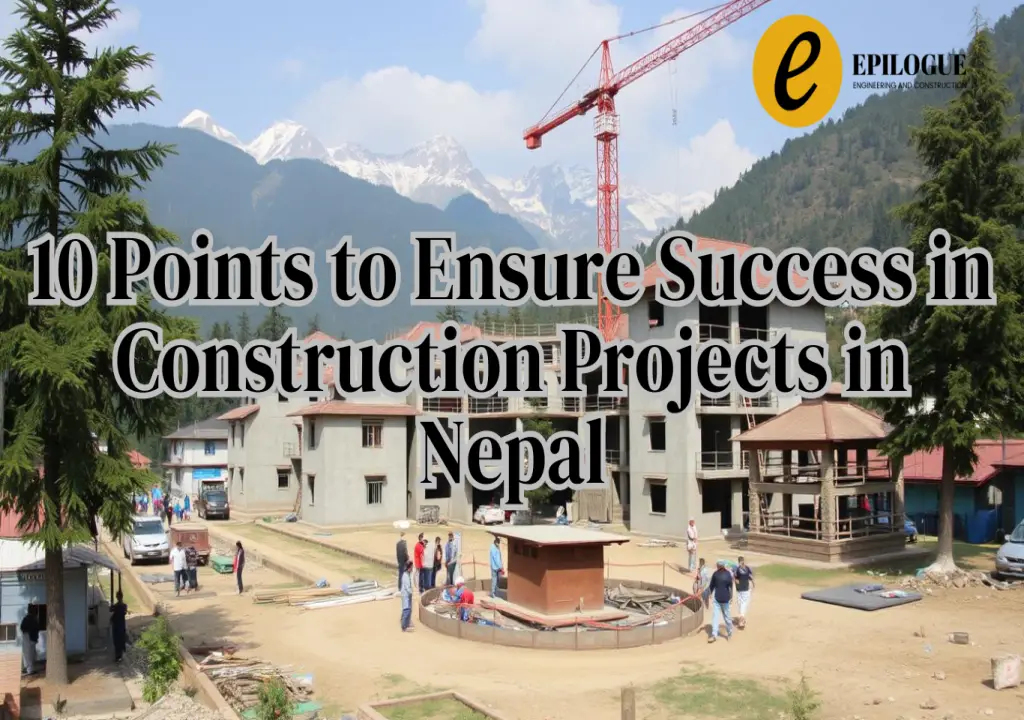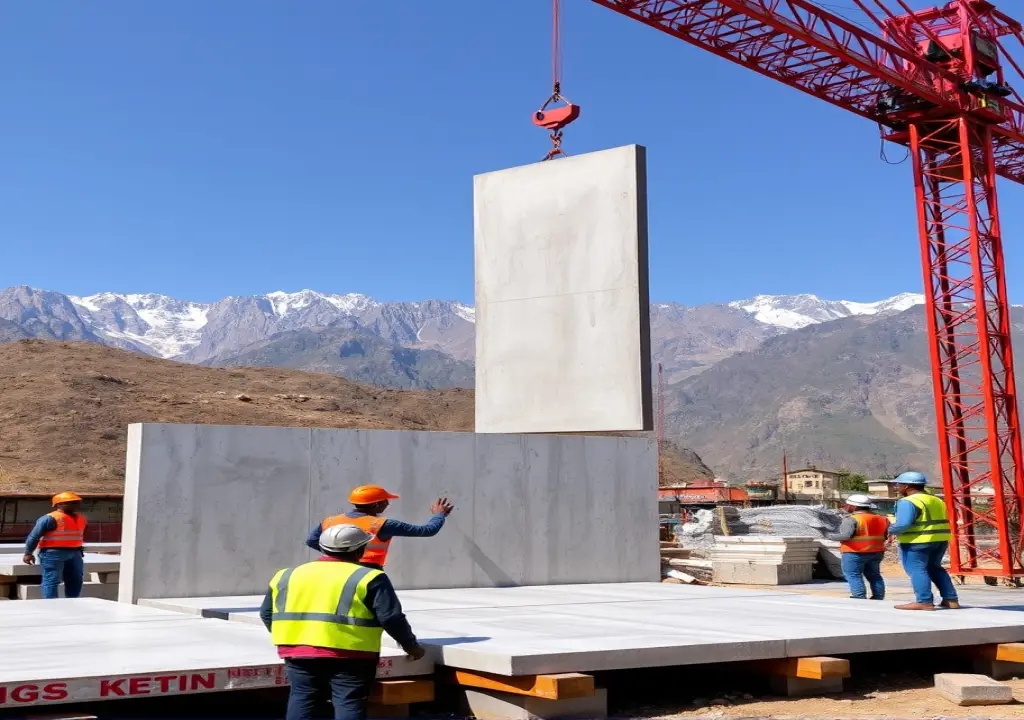Search Blogs

Published By: Epilogue Engineering and Construction
Published On: Aug 29, 2024, 10:50:31 AM * 5 min to complete.
How to Ensure Success in Construction Projects in Nepal?
Undertaking construction projects in Nepal, especially in dynamic urban centers like Kathmandu, requires a meticulous approach and careful planning. From understanding local regulations to managing budgets and engaging with the community, every detail matters. Here are the nine most important steps to help ensure the success of any construction project in Nepal.
1. The Importance of Proper Planning
Proper planning forms the foundation of any successful construction project. It involves setting clear objectives, defining project scopes, and outlining timelines. In Nepal, where the terrain and climate can be challenging, planning helps identify potential obstacles early on. Effective planning includes risk assessment, resource allocation, and the establishment of milestones. This approach ensures that all phases of the project are aligned, reducing delays and unforeseen costs.
2. Understand Local Regulations and Permits
Compliance with local regulations and obtaining the necessary permits are crucial steps in the construction process. Each municipality in Nepal, including Kathmandu, has its own set of rules that govern construction activities. Navigating these regulations can be complex, but it is essential to avoid legal issues or delays. Work closely with local authorities to ensure all documentation is in order, from zoning laws to environmental clearances, to keep your construction projects on track.
3. Site Selection and Preparation
Choosing the right site is critical for any construction project. In Nepal, site selection should consider factors such as land stability, accessibility, and proximity to essential utilities. Once the site is selected, proper preparation must be carried out to make it ready for construction. This includes soil testing, land clearing, and leveling. A well-prepared site minimizes risks during construction and lays a solid foundation for future structures.
4. Prioritize Earthquake-Resistant Design
Nepal is located in a seismically active region, making earthquake-resistant design a top priority for any construction company. Use materials and construction techniques that enhance the building’s ability to withstand seismic activity. Incorporate structural reinforcements, flexible building materials, and advanced engineering methods. Ensuring earthquake resilience not only protects lives but also preserves the investment over the long term.
5. Premium Materials and Professional Labor
In Nepal, a successful construction project requires high-quality materials and skilled labor. Environmental factors like monsoons, temperature fluctuations, and seismic activity necessitate the use of quality materials. Skilled labor ensures efficient, safe, and high-standard completion of construction projects, despite the unique challenges faced by Nepal.
6. Budgeting and Cost Estimation
Accurate budgeting and cost estimation are vital for managing construction projects effectively. Develop a detailed budget that covers all aspects, from materials and labor to permits and contingency funds. Regularly review and adjust the budget to reflect actual expenses and changes in project scope. This level of financial oversight helps prevent cost overruns and keeps the project within the planned financial framework.
7. Ensure Quality Control
Quality control is essential to maintain high standards throughout the construction process. Regular inspections, material testing, and adherence to building codes are necessary to ensure that every phase meets the required quality standards. By implementing a robust quality control process, you can identify and rectify potential issues early, reducing the risk of costly rework and ensuring the longevity of the construction.
8. Effective Project Management
Effective project management is the backbone of successful construction projects in Nepal. This includes coordinating with various stakeholders, managing resources, and ensuring that the project stays on schedule and within budget. Use project management tools and techniques to track progress, handle delays, and allocate resources efficiently. Strong project management minimizes risks and maximizes productivity, ensuring a smooth construction process.
9. Embrace Sustainable Practices
In today’s world, embracing sustainable practices is no longer optional—it’s a necessity. Opt for eco-friendly materials, energy-efficient designs, and waste-reduction strategies to minimize the environmental impact of your construction projects. In Nepal, where natural resources are precious, sustainable construction practices can also lead to cost savings and improved community relations.
10. Communication is Key
Clear and consistent communication is crucial in any construction project. Keep all stakeholders, from clients to contractors, informed about project progress, changes, and potential challenges. Regular updates and transparent communication help build trust, foster collaboration, and ensure that everyone is aligned with the project’s goals.
Conclusion
By focusing on these nine critical aspects, you can ensure the success of your construction projects in Nepal. Proper planning, understanding local regulations, selecting the right site, and prioritizing quality and sustainability are essential. Combine these with effective project management and open communication to deliver outstanding results in the competitive construction landscape of Kathmandu and beyond.
